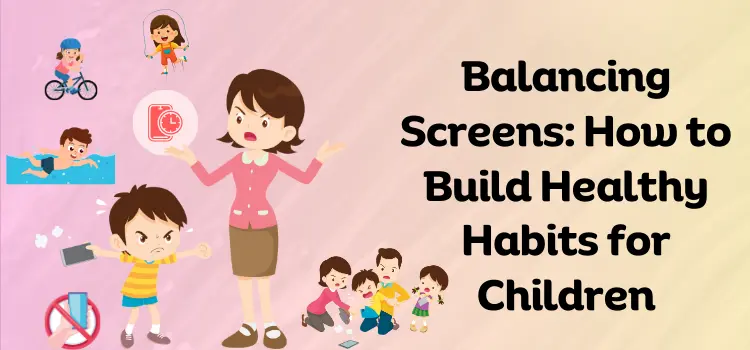
Introduction
Developing How to Build Healthy Habits For Children lays the foundation for a lifetime of well-being. Parents and caregivers play a crucial role in shaping children’s behaviors, from nutrition and exercise to sleep and emotional well-being. Encouraging positive habits early on helps children grow into healthy and responsible adults. In this guide, we’ll explore practical strategies for fostering healthy habits in children.
1. Encourage a Balanced Diet
Make Healthy Eating Fun
Children are more likely to eat healthy foods when they are presented in an appealing way. Try these strategies:
- Serve fruits and vegetables in fun shapes and colorful arrangements.
- Get children involved in meal preparation to make them excited about healthy eating.
- Offer a variety of foods to develop a diverse palate.
Limit Processed Foods and Sugary Drinks
- Encourage whole foods like fruits, vegetables, whole grains, and lean proteins.
- Replace sugary drinks with water or natural fruit juices.
- Read food labels and choose snacks with minimal added sugars and preservatives.
2. Promote Regular Physical Activity
Make Exercise a Daily Routine
Physical activity is essential for children’s physical and mental health. Encourage at least 60 minutes of active play every day:
- Organize outdoor games, biking, or hiking trips.
- Encourage participation in sports or dance classes.
- Set a good example by staying active as a family.
Limit Screen Time
Excessive screen time can lead to sedentary habits and affect children’s health. Set limits on TV, video games, and mobile devices by:
- Encouraging outdoor play instead of digital entertainment.
- Setting screen-free zones during meals and before bedtime.
- Offering alternative activities like reading, puzzles, or crafts.
3. Establish a Consistent Sleep Schedule
Quality sleep is crucial for children’s growth and development. Follow these tips to create healthy sleep habits:
- Set a consistent bedtime and wake-up routine.
- Create a relaxing bedtime routine (reading a book, warm bath, dim lights).
- Limit screen exposure at least an hour before bedtime to improve sleep quality.
Ensure that children get the recommended hours of sleep based on their age:
- Toddlers (1-2 years): 11-14 hours per day
- Preschoolers (3-5 years): 10-13 hours per day
- School-age children (6-12 years): 9-12 hours per day
- Teenagers (13-18 years): 8-10 hours per day
4. Teach Proper Hygiene Habits
Make Hygiene Fun and Routine
Teaching children good hygiene prevents illnesses and promotes self-care. Encourage:
- Regular handwashing with soap before meals and after playing outside.
- Brushing teeth twice a day and flossing daily.
- Bathing regularly and wearing clean clothes.
Use songs, timers, or rewards to make these activities enjoyable and consistent.
5. Foster Emotional Well-Being
Encourage Open Communication
Children should feel comfortable expressing their feelings. Promote emotional well-being by:
- Listening to their concerns and validating their emotions.
- Encouraging problem-solving and resilience-building activities.
- Teaching mindfulness and relaxation techniques to manage stress.
Model Positive Behavior
Children learn by observing adults. Demonstrate healthy coping strategies, kindness, and gratitude in daily interactions to help them develop strong emotional intelligence.
6. Build Strong Social Skills
Encourage Positive Social Interactions
Help children develop meaningful relationships by:
- Teaching them to share, take turns, and respect others.
- Encouraging participation in group activities and community events.
- Setting clear expectations for respectful communication and behavior.
7. Create a Healthy Home Environment
Be a Role Model
Children mimic adult behaviors. Show them the importance of:
- Healthy eating habits by making nutritious choices.
- Regular physical activity by being active yourself.
- Positive attitude and self-care through your daily actions.
Set a Routine
A structured daily routine helps children feel secure and promotes responsibility. Include:
- Regular meal times.
- Scheduled playtime and learning activities.
- Designated quiet time for relaxation and self-reflection.
Conclusion
Building healthy habits in children requires patience, consistency, and a positive approach. By focusing on nutrition, physical activity, sleep, hygiene, emotional well-being, and social skills, parents and caregivers can set children on the path to lifelong health and success. The key is to make these habits enjoyable and part of their everyday lives. Start today, and watch your child flourish!
Read More : Onelane Solution




